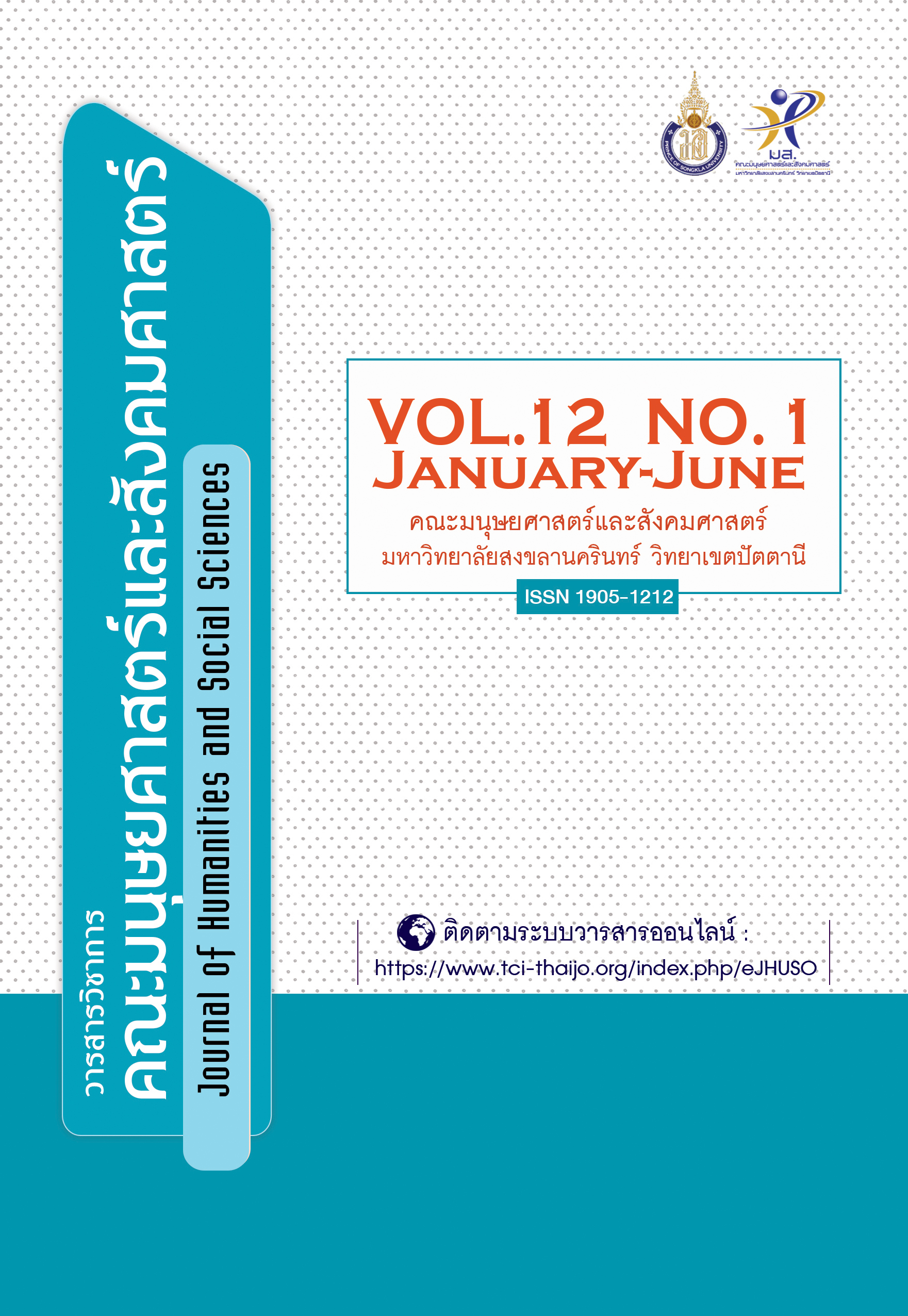ครอบครัวไทยมุสลิมจังหวัดปัตตานีในช่วงการเปลี่ยนผ่านทางประชากร
Keywords:
ครอบครัวไทยมุสลิม, การเปลี่ยนผ่านทางประชากร, Thai Muslims Family, Demography TransitionsAbstract
บทความนี้มีจุดประสงค์เพื่อตรวจสอบสถานการณ์ทางประชากรในจังหวัดปัตตานี ภายใต้สถานการณ์เปลี่ยนผ่านทางประชากรในประเทศไทย และสืบค้นความเชื่อในเรื่องการแต่งงานเพื่อสร้างครอบครัว และการมีบุตรของชาวไทยมุสลิมในจังหวัดปัตตานี ผลการศึกษาพบว่า โครงสร้างทางประชากรในจังหวัดปัตตานีได้เปลี่ยนผ่านเป็นโครงสร้างประชากรสูงวัยแล้ว เช่นเดียวกับโครงสร้างประชากรในระดับประเทศ แต่ก็ยังมีอัตราเจริญพันธุ์สูงกว่าระดับทดแทน ทั้งนี้เป็นเพราะความเชื่อตามหลักการในศาสนาอิสลามคือ การส่งเสริมให้มุสลิมแต่งงาน มีครอบครัว และสนับสนุนการมีบุตร แม้ว่าจะพบว่าชาวไทยมุสลิมบางส่วนได้รับการศึกษาสูง มีการยืดอายุการสมรส ชะลอการแต่งงาน แต่ก็ยังเห็นด้วยกับการแต่งงานและมีบุตรตามหลักการในศาสนา โดยมีครอบครัวเดี่ยวในสัดส่วนสูงกว่าครอบครัวขยายเล็กน้อย การอยู่อาศัยและการตั้งบ้านเรือนยังเน้นความสัมพันธ์ในเครือญาติและการอยู่ใกล้เคียงเครือญาติ อย่างไรก็ตามการแต่งงานและสร้างครอบครัวไม่พบความแตกต่างระหว่างเขตเมืองกับชนบท ในขณะที่ความเชื่อในการมีบุตรมีความแตกต่างระหว่างชนบทกับเมืองกล่าวคือ ชาวไทยมุสลิมในชนบทไม่ได้มีการวางแผนระยะห่างระหว่างบุตรแต่ละคน รวมถึงกำลังทรัพย์ในการดูแลบุตร ในขณะที่ชาวไทยมุสลิมที่อาศัยอยู่ในเมืองคำนึงถึงระยะห่างระหว่างบุตรแต่ละคน การให้เวลาดูแล การให้การศึกษา และความพร้อมกำลังทรัพย์ต่อการมีบุตร แต่ก็ไม่ได้กำหนดจำนวนบุตรที่แน่นอนเช่นเดียวกับชาวไทยมุสลิมในชนบทThai Muslims Family in Pattani during demographic transitions stages
The purposes of this article were 1) to monitor the population situation in Pattani under demographic transition stages in Thailand 2) to investigate the perspectives of Thai Muslims in Pattani on marriage to start a family and have children. The findings of the study showed that the population structure in Pattani had been changed to aging population structure, which correlated to the national level; however, the total fertility rate was higher than replacement level fertility. This is because the belief and view of Thai Muslims is based on Islamic principles that encourage Muslim people to start a family and have children. Even though some Thai Muslims who were highly educated remained single longer, they agreed that they had to get married and have children in accordance with the religious principles. As for the family patterns, it was found out that there were more nuclear families than extended families, and people lived near their family and relatives. In addition, the result revealed that there was no difference between people living in city and people living in the country in that they believed they should get married and have children rather than remain single. However, there was difference in the aspect of having children. Unlike Thai Muslims in the city, those living in the country did not have a family planning, and were not concerned about pregnancy interval, and the money needed for raising their children. The city people also devoted their time to take care of their children, provide education to their children, and financially support them. Yet, both groups did not restrict the number of children they could have.
Downloads
How to Cite
Issue
Section
License
บทความนี้ได้รับการตีพิมพ์เป็นของวารสารวิชาการคณะมนุษยศาสตร์และสังคมศาสตร์ คณะมนุษยศาสตร์และสังคมศาสตร์ มหาวิทยาลัยสงขลานครินทร์ วิทยาเขตปัตตานี






